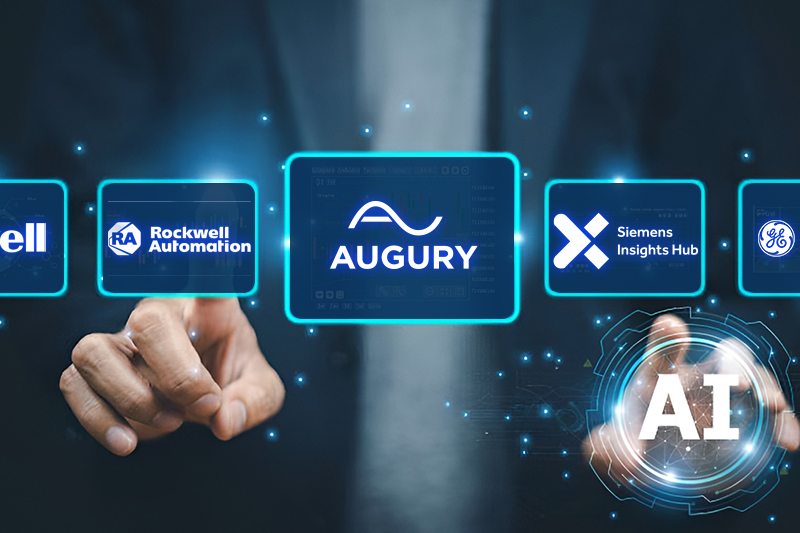

Introduction
Artificial Intelligence (AI) is transforming the manufacturing industry by enhancing efficiency, reducing costs, and improving product quality. From predictive maintenance to generative design, AI tools are revolutionizing how manufacturers operate. This article highlights the top AI tools for manufacturers in 2025, providing an in-depth look at their capabilities and how they can benefit your business.
Tool Overviews
Below is a breakdown of each tool, including their primary use, relevance to manufacturing, and how they leverage AI.
Description: Augury provides AI-driven solutions for machine health and process optimization, predicting and preventing machine failures.
Primary Use Case: Machine health and predictive maintenance, reducing downtime and optimizing production lines.
Relevance to Manufacturing: Augury’s solutions are crucial for maintaining machine health and ensuring smooth production processes.
How it Uses AI: Augury uses AI to analyze sensor data and detect anomalies, predicting machine failures before they occur.
Description: Rockwell Automation is a leader in industrial automation, offering a range of AI-powered tools for design, operations, and maintenance.
Primary Use Case: Predictive analytics and anomaly detection, enhancing real-time monitoring and decision-making.
Relevance to Manufacturing: Rockwell’s tools are integral to modern manufacturing, providing comprehensive solutions from design to maintenance.
How it Uses AI: Rockwell integrates generative AI for automation design and machine learning for predicting anomalies.
Description: Siemens MindSphere (now Insights Hub) is an industrial IoT platform that uses AI to provide insights into asset performance and process optimization.
Primary Use Case: IoT data analysis and process optimization, focusing on asset monitoring and quality prediction.
Relevance to Manufacturing: Insights Hub helps manufacturers optimize operations using data-driven insights.
How it Uses AI: AI analyzes IoT data for predictive insights, improving efficiency and reducing costs.
Description: Successor to GE Predix, GE Vernova focuses on AI-based software for sustainability and operations management.
Primary Use Case: Operational efficiency and scalability through sustainability insights.
Relevance to Manufacturing: GE Vernova helps manage operations sustainably and efficiently.
How it Uses AI: AI analyzes operational and sustainability data for better decision-making.
Description: Honeywell Forge is an IoT platform delivering AI-enabled applications for intelligent, efficient, and secure industrial operations.
Primary Use Case: Enhancing operational efficiency, decision-making, and cybersecurity.
Relevance to Manufacturing: Designed for digital transformation, improving efficiency through centralized data and analytics.
How it Uses AI: AI automates processes, predicts maintenance needs, and optimizes energy usage.
What Do These Tools Mean to LAIDFU?
LAIDFU is a no-code AI agent builder. Needless to say, LAIDFU allows user to adopt a MoM approach to achieve maximum benefits from AI adoption.
Manufacturing itself is just a subset of an enterprise’s operation as a while. LAIDFU allows user to configure and execute multiple AI tasks to streamline operations across different departments, not just production or production related entities.
What is AI Agent?
An AI agent is a software program or system powered by artificial intelligence designed to perform specific tasks or make decisions autonomously. It perceives its environment through data inputs, processes information using algorithms, and takes actions to achieve predefined goals. AI agents can range from simple rule-based systems, like chatbots, to complex models, such as self-driving cars or virtual assistants. They often learn and adapt over time using techniques like machine learning. In essence, an AI agent acts as an intelligent entity, mimicking human-like reasoning or behavior to solve problems, assist users, or optimize processes efficiently.
Contact us
Error: Contact form not found.


